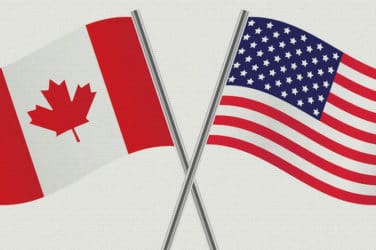
Transition to IFRS accounting standards will entail major challenges.
Demands of regulatory and statutory reporting are becoming more challenging for fund administration in Canada, forcing them to improve and streamline processes and do more with less.
“Canadian fund administration leaders face unprecedented operational challenges and opportunities,” Scott Powell, financial reporting product manager at Confluence, told Markets Media.
With IFRS reporting on the horizon, stakeholder demands for risk control, transparency and scale are redefining the rules of the game.
“The Canadian fund industry is aggressively pursuing best practices to manage risk while boosting efficiency,” said Powell. “This is taking place in an environment where regulations and accounting standards are rapidly evolving.”
One of the most formidable hurdles facing Canadian investment firms is the transition to International Financial Reporting Standards (IFRS).
“Canadian managers are well prepared for the transition to IFRS,” Raj Kothari, leader of the Canadian asset management practice at PricewaterhouseCoopers, told Markets Media. “There are some major issues related to fund accounting that need to be addressed.”
The most significant issue facing Canadian investment funds in the transition to IFRS is the basis on which they should measure investments, including those they control.
Under Canadian GAAP, funds are required to carry investments at fair value. Under IFRS, however, if a fund control an operating company or another fund, it is required to consolidate rather than account for the investment at fair value.
The International Accounting Standards Board in August proposed guidance in the form of an exposure draft which would align the IFRS treatment with existing Canadian GAAP.
In announcing the exposure draft, the IASB noted that investors had commented that accounting under IFRS would not provide them with the information they need to assess the value of their investments.
To address this issue, the exposure draft proposes criteria that would have to be met by an entity in order to qualify as an investment entity. These entities would be exempt from the consolidation requirements and instead would be required to account for their investments at fair value through profit or loss.
The Accounting Standards Board of Canada has delayed the mandatory changeover to IFRS by threeyears, until Jan. 1, 2014, in order to accommodate the exposure draft, whose comment period expires on Jan. 5, 2012.
“Hopefully, this issue will be resolved once the exposure draft is adopted,” said Kothari.
Although Canadian funds will be required to adopt IFRS for years on or after Jan. 1, 2013, they will be required to present comparatives in the year of adoption.
This means that funds in Canada with a calendar year end will have only two weeks before they need to track IFRS differences, since 2012 will be the comparative year in their first IFRS financial statements, said Chris Wood, manager of national and global accounting consulting services at PwC Canada.




